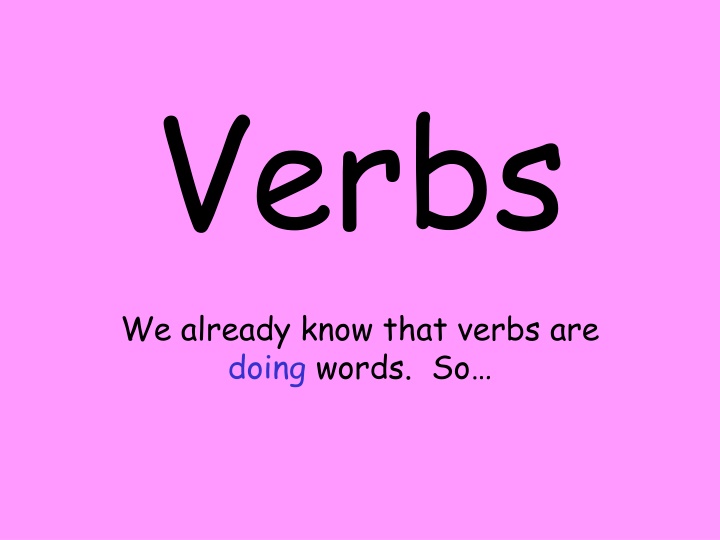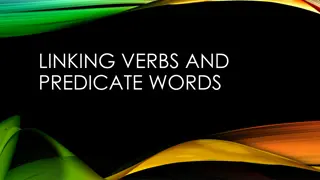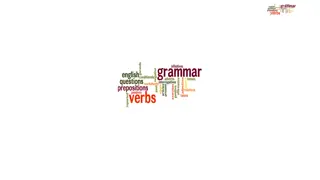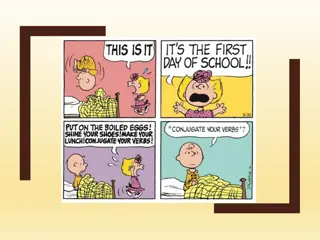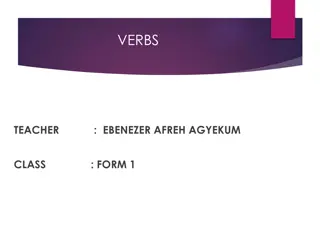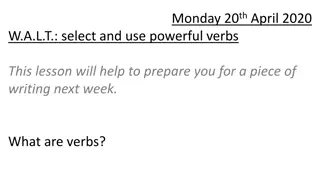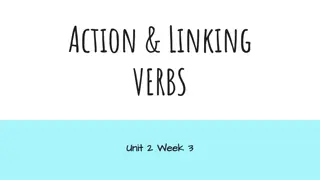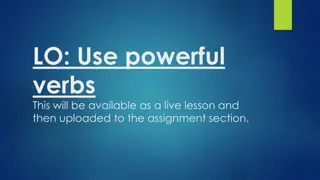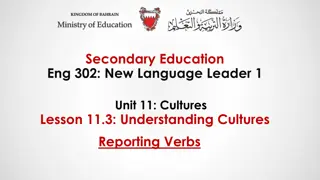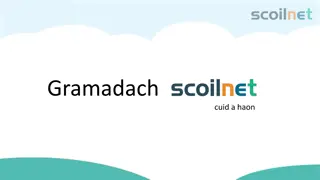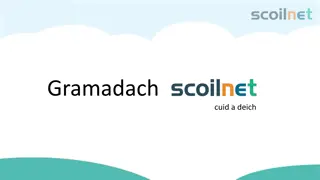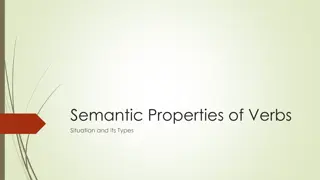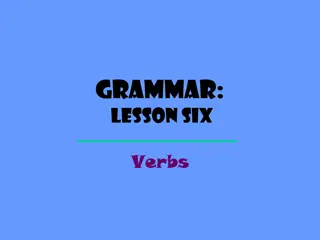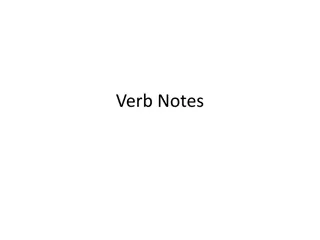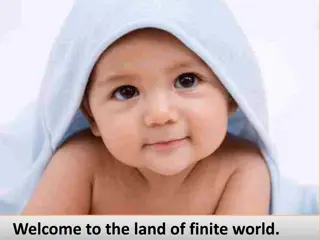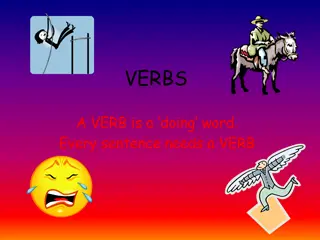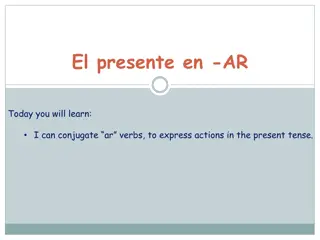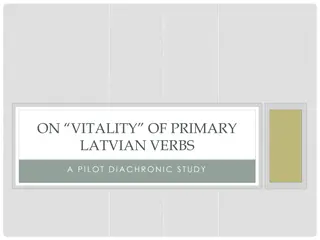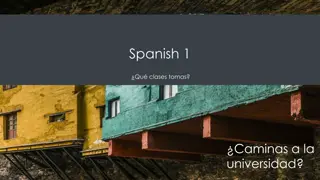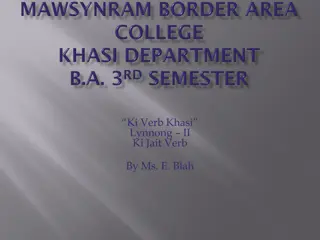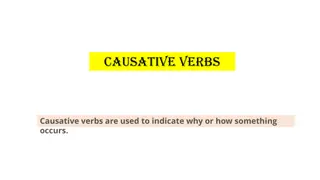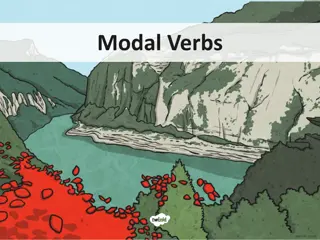Verbs as Action Words
Verbs, the essential elements of sentences, convey actions. By grasping their role, learners enhance their writing and communication skills significantly. Understanding how verbs function helps in constructing clear, concise, and engaging sentences that effectively convey the intended message. Dive deeper into the world of verbs to excel in language expression.
Download Presentation

Please find below an Image/Link to download the presentation.
The content on the website is provided AS IS for your information and personal use only. It may not be sold, licensed, or shared on other websites without obtaining consent from the author.If you encounter any issues during the download, it is possible that the publisher has removed the file from their server.
You are allowed to download the files provided on this website for personal or commercial use, subject to the condition that they are used lawfully. All files are the property of their respective owners.
The content on the website is provided AS IS for your information and personal use only. It may not be sold, licensed, or shared on other websites without obtaining consent from the author.
E N D
Presentation Transcript
Verbs We already know that verbs are doing words. So
Spot the verbs! Mr Twit tied balloons to his wife s arms. Mr Twit grinned horribly as he tied balloons to his wife s arms. The Grand High Witch held her nose and screamed at the witches. Holding her nose, the Grand High Witch screamed at the witches.
But now we are going to learn how to spot verbs which are being words. am are were is was
The monkeys are upside down. There is glue on the dead tree. There were no birds for Mr Twit s bird pie. They are horrible people. We were cold and wet all week. I am here! Where are you?
Mostly we put being verbs with a participle. I am reading my book. You are talking too loudly. He is eating his lunch. She is washing her face. They were playing on the lawn. We are going home. Peter and Tom were singing out of tune.
What do you notice about the participles that go with our being verbs? Hint remember past and present tense.
These being verbs are with a present participle. I am reading my book. You are talking too loudly. He is eating his lunch. She is washing her face. They were playing on the lawn. We are going home. Peter and Tom were singing out of tune.
Spot the being verbs and the present participles. We were singing in the choir. She was not working hard. They are coming home with us. Ellie is feeling ill. Zoe was running in the last race. They were sliding helplessly! John and Karen were watching them and giggling.
What about these? Mrs Twit was stretched by those balloons. All the birds were saved from the bird pie. Mugglewump was delighted to get back at the Twits. Mr and Mrs Twit were glued to the floor.
What did you notice ? Hint. - Remember past and present tense.
Here the being verb is with a past participle. Mrs Twit was stretched by those balloons. All the birds were saved from the bird pie. Mugglewump was delighted to get back at the Twits. Mr and Mrs Twit were glued to the floor.
Can you spot the verbs and the participles? Paula was smiling sweetly as she gave him the cup. Smiling sweetly, Paula gave him the cup. They were pushing their way to the front of the queue. Pushing their way to the front of the queue, they claimed their prize. He was amazed when they won the prize.
The witches screamed when they were squashed by an enormous hippopotamus. Stepping inside, Emily was amazed by the size of the capsule. Seeing the open door, she stepped inside. They were cowering under the stairs when the bomb exploded. Cowering under the stairs, they heard the bomb explode.
